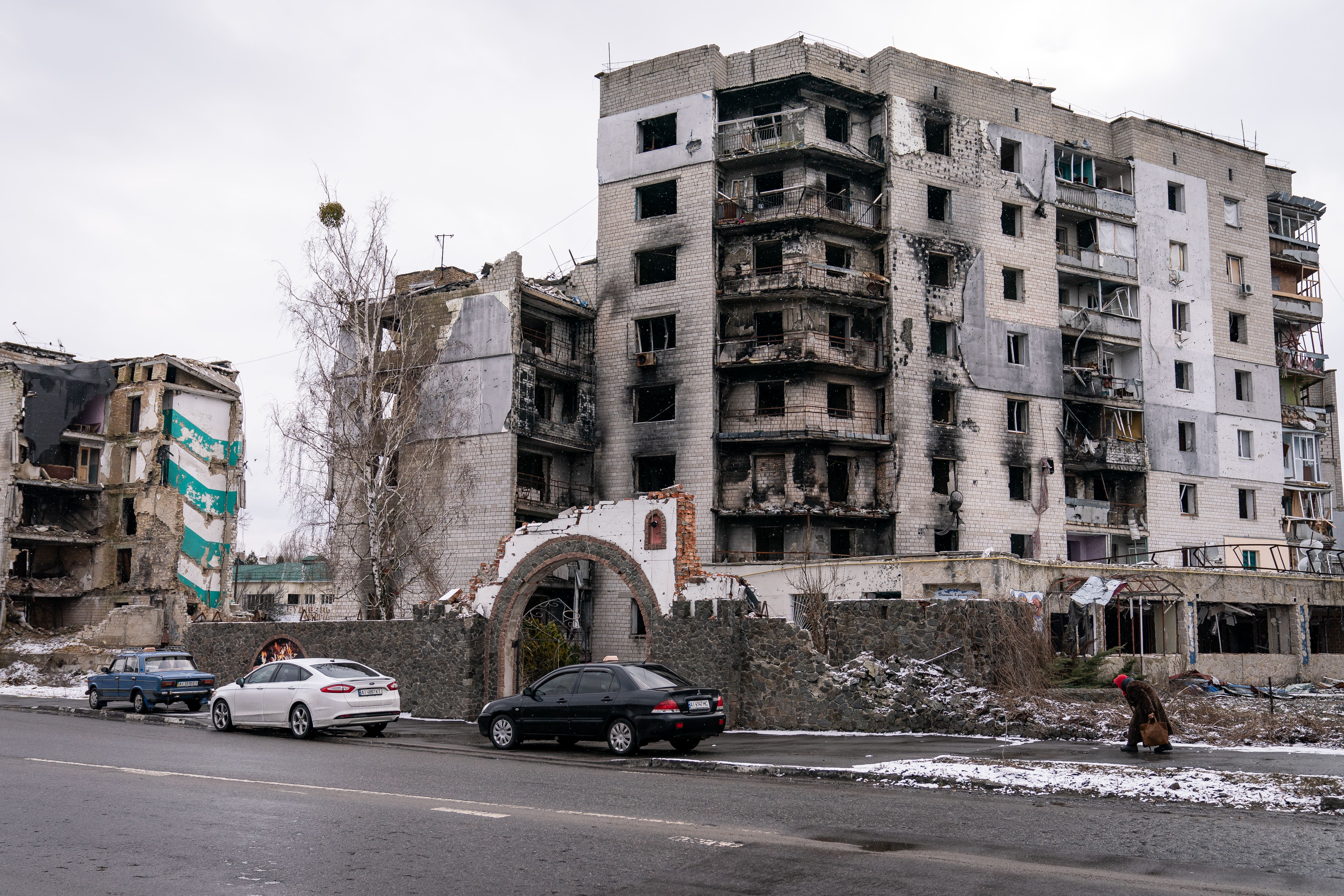Windows designed by Cambridge student ‘make homes liveable’ in war-torn Ukraine
The project, Insulate Ukraine, replaces bullet and bomb-damaged windows with plastic ones designed by PhD student Harry Blakiston Houston.

Your support helps us to tell the story
From reproductive rights to climate change to Big Tech, The Independent is on the ground when the story is developing. Whether it's investigating the financials of Elon Musk's pro-Trump PAC or producing our latest documentary, 'The A Word', which shines a light on the American women fighting for reproductive rights, we know how important it is to parse out the facts from the messaging.
At such a critical moment in US history, we need reporters on the ground. Your donation allows us to keep sending journalists to speak to both sides of the story.
The Independent is trusted by Americans across the entire political spectrum. And unlike many other quality news outlets, we choose not to lock Americans out of our reporting and analysis with paywalls. We believe quality journalism should be available to everyone, paid for by those who can afford it.
Your support makes all the difference.Plastic windows designed by a Cambridge PhD student are transforming uninhabitable houses in war-torn parts of Ukraine into liveable homes, local residents have said.
Engineer Harry Blakiston Houston created the Insulate Ukraine project to replace bullet and bomb-damaged windows with plastic ones of his own design, pausing his studies to concentrate on the initiative.
According to the United Nations, millions of people in Ukraine are “living in damaged homes or in buildings ill-suited to provide sufficient protection”, particularly in the winter when temperatures can plummet to -20C.
Before that it was impossible to live in that house because there were no windows and it was very damp and cold there
Mr Houston said there was a woman in Mykolaiv, southern Ukraine, who had been sleeping in her bathtub for two months because it was the warmest place in her house before the plastic windows were installed.
He added: “We were able to get her back to some kind of normality after the windows went in. The house was immediately warmer and lighter – she was able to rearrange everything and actually live in her home again.”
Fedor Tikva, of Izyum, eastern Ukraine, told the PA news agency that the Insulate Ukraine replacement windows have made his house liveable after his original windows were destroyed by nearby bombing.
The 64-year-old said: “After the workers built windows and now it is possible to live in that house.
I am happy now because after the installation of all the windows the house became more cosy and warmer and lighter
“Before that it was impossible to live in that house because there were no windows and it was very damp and cold there. There was no heating, the heating was also destroyed.”
“All windows there were broken, even the frames partly were damaged,” he said. “The walls also were a little bit damaged with parts of bombs.”
The pensioner added: “This is a very great help, I am very satisfied with these windows and I am happy now because after the installation of all the windows the house became more cosy and warmer and lighter.
“Before the installation… it was too dark and cold inside.”
He continued: “We were the same happy after the installation of the windows as we were happy when the light and gas came back into our houses after the occupation.
“So we are cheering and saying hooray.”
There’s hardly a house in Izyum without bullet holes in it
Mr Tikva shares the house with his sister, whose flat on the other side of the city burned down during the Russian occupation.
He told the PA news agency he has two houses and that he had been staying in a different home which suffered less damage until the installation of the new windows.
Izyum was occupied by Russian soldiers between March 1 and September 11 last year, according to Mr Tikva.
Insulate Ukraine staff member Helen Demchenko, who translated for the 64-year-old, told PA that new windows have been provided to more than 200 customers in Izyum.
She said residents are either given materials to build the windows themselves or staff and volunteers will install them if customers are vulnerable.
The project is operating across the liberated areas of Ukraine that have “suffered the most” at Russia’s hands.
The concept uses triple-glazed polyethylene to protect against the cold, costs around £12 per square metre of window, and can be built at home in quarter of an hour from basic materials.
Mr Houston said: “The level of destruction the Russians left in their wake is astounding. There’s hardly a house in Izyum without bullet holes in it. In peacetime the city was home to 50,000 people, now there are 10,000.
“It’s just the most extraordinary image of destruction everywhere but now it’s safe.
“Part of Putin’s war is about trying to make people in Ukraine cold and miserable. It’s about breaking their resolve to actually continue defending themselves.
“We’ve come up with a solution that makes a real difference.”
The PhD student came up with the idea while queueing to see the late Queen lying in state last year.